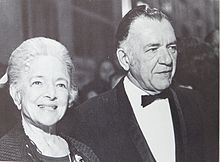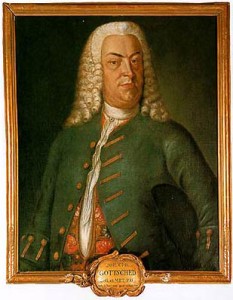Wonky Rules, What We Talk About When . . .
Have you ever attended a talkback after viewing a new work (a staged reading or workshop production) and been shocked by the level of feedback? Maybe you wrote the play. Maybe you simply admired it. You thought it had a lot going for it. Then out they come. THE WONKY RULES OF DRAMA.
It’s as if the spirit of Agatha Trunchbull, the rule-mongering headmistress of MATILDA THE MUSICAL, is unleashed and what the play has going for it gets overwhelmed with a system of negativity that demands conformity.
A play might be as remarkable as the young heroine Matilda . . . but never mind. There are the WONKY rules. Obey, obey, obey.
The trouble with rules, especially theatre art rules, . . . they come and go according to the taste of the times. They may be well-meaning and can be helpful in some instances. More often than not, they inhibit creativity. They are blind to originality. They dismiss. They do more harm than good when they inspire connect-the-dots, rule-book dramas.
Wonky Rules Make For Dramatic Rigor Mortis
“The moment we succeed in consciously patterning our theater,” Walter Kerr has written, “in making it do precisely what we think it ought to be doing, we are apt to paralyze it.” Kerr, a revered New York theater critic and intellectual force in the theatre for many years, won the Pulitzer Prize for Criticism in 1978. As an instructor of playwriting, he mandated to his students that the purpose of the playwright is to entertain.
About rule-oriented theatre, he cites the neo-classical Italian theatre of the 16th century, the state-censored French theatre of the 17th century, and the moral British theater of the 18th century as eras of dramatic rigor mortis. “In each case, the deliberately shaped experience became an experience of boredom, and what had been outlawed as vulgar proved to be embarrassingly vital.”
If you think of plays as something constructed or wrought, that you are building a piece of furniture, then it is going to be different than it would be if you think writing a play is like composing or painting, an act of creation that involves the imagination.
One of theatre history’s most notorious theorist is Johann Gottsched (1700-1776). Gottshed was a professor of poetry at Leipzig University and a leader of rationalism in German dramatic theory. An admirer of French classicism, Gottsched went even further (than the French Academy) in his demand for a moral function of drama and for the stage reflecting an empirical realty. He believed, for example, that the location of the play could not change because the spectator did not change his seat and would be confused by a play that jumped from place to place.
In this excerpt from his Versuch einer critische Dichtkunst (1730), Gottsched lays out his formula for playwriting.
First of all, select an instructive moral lesson which will form a basis for the entire plot in accordance with the goals which you wish to achieve. Next, lay out the general circumstances of an action which very clearly illustrates this chosen instruction . . . . Next, you must determine what effect you wish to achieve in this creation; do you desire to make a fable, a comedy, a tragedy, or an epic of it? Everything will influence the names given to the characters who will appear in it. A fable will use animal names. . . . If thou want to make a comedy . . . the characters must be citizens, for heroes and princes belong in a tragedy. The one who does wrong must by the end of the play be the object of scorn and laughter.
(For more on Professor Gottsched and his reforms on the German theatre, see Marvin Carlson’s THEORIES OF THE THEATRE: A Historical and Critical Survey, from the Greeks to the Present.)
Is Your Favorite Play a Wonky Rule Breaker, Past or Present?
Plays that we consider important today almost invariably defied the drama rules of their day. Plays that were once reviled are now pillars of the theatre due to the courage and good fortune of the authors and ever-changing criteria for judging plays. . . . Be honest. Think of your own pet guideline for judging a play and maybe it has fossilized and become a WONKY rule.
Here are the top 10 WONKY RULES OF DRAMA that I’ve experienced over the years. Are any of them favorites of yours? Can you think of a favorite play that defies one or more of the rules on the list? Do you disagree and feel that one or more of the rules are necessary restrictions?
- Show, don’t tell.
- Write what you know.
- A play should make sense.
- Whose play is it? Focus on one character’s journey.
- A play must have characters we care about.
- A speech must advance the plot or reveal character motivation.
- Drama is conflict, conflict, conflict.
- Loose ends should be tied together or cut.
- There should be one consistent tone.
- A play must reflect the real world.
Please share your comments on the Wonky Rules of Drama.




There are no rules. There are elements of drama which one may choose to use or not, but there are no rules. There should be rules on the feedback to artists which so easily can get out of control. Well meaning people giving well meaning advice on what is wrong with your play and how THEY would fix it. One set of rules on artist feedback is the Liz Lerman’s Critical Response: https://www.lizlerman.com/crpLL.html
Use as rules, or just as a set of principles. Keeps the artist from being bashed and yet still able to receive helpful feedback.
Cool. This reminds me that a character in Annie Baker’s THE ALIENS says the same thing. “There are no rules.” The character is speaking within the context of the play, but when I heard it I couldn’t help think it was Baker’s sly commentary on the art of playwriting as well.
What an enlightenment! I had NO idea there was a Pulitzer Prize for Criticism!
Isn’t artistic expression all about breaking (or bending, or at least testing the strength of) the rules?
Isn’t history littered with artists of great renown, who were, essentially, rule breakers?
Sure, these rules are mostly there to stop neophytes from making rookie mistakes, but once they’re understood it’s time to break out the baseball bat and swing away.
Let’s look at these in order.
1 – Don’t tell? My favorite thing about plays is that they let the characters speak their (their authors’) minds! Showing is great, but tell me more …
2 – So … no Zombies, ghosts, aliens, talking animals, deities or (in my case) women? Only what we know? How dull.
3 – Define ‘sense.’ Define ‘to whom.’ Then talk to me.
4 – One journey per play? So … Vladamir, but not Estragon?
5 – Okay … but we don’t have to LIKE them!
6 – Please … allow poor Laertes to hold forth, utterly without motivation.
7 – Drama is conflict, resolution of conflict, avoidance of conflict and, sometimes, the blissful, restful and mysterious utter lack of that thing we call …
8 – Can you define the delicious Red Herring as anything but a deliberate loose end?
9 – Tone can shift, DAMMIT. Just kidding. No I’m not. I’m serious. Or not.
10 – Theoretical physicists would tell you that there may be infinite real worlds, so this rule is easy. Just pick one.
Really, I think there’s only one unbreakable rule in drama : Don’t be boring.
Great post, Mr Jones!!